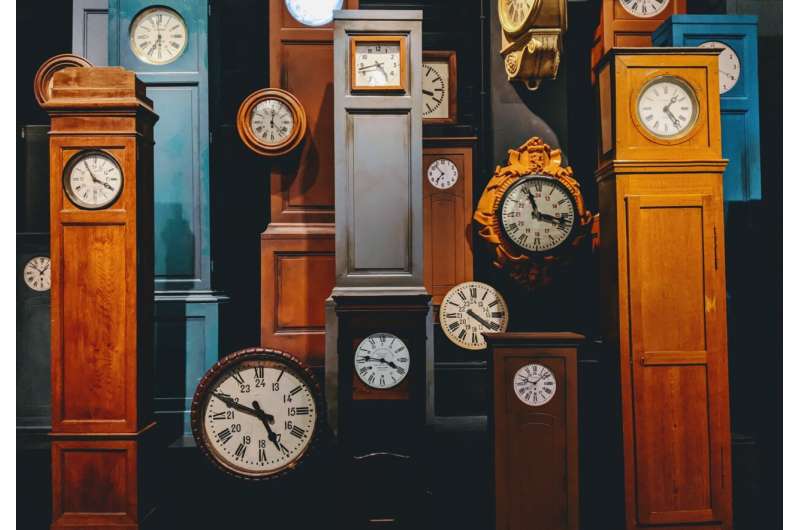This article has been reviewed according to Science X's editorial process and policies. Editors have highlighted the following attributes while ensuring the content's credibility:
fact-checked
peer-reviewed publication
trusted source
proofread
New position statement supports permanent standard time

An updated position statement from the American Academy of Sleep Medicine supports the replacement of daylight saving time with permanent standard time.
The statement is published in the Journal of Clinical Sleep Medicine.
It is the position of the AASM that the United States should eliminate seasonal time changes in favor of permanent standard time, which aligns best with human circadian biology. According to the statement, evidence supports the distinct benefits of standard time for health and safety, while also underscoring the potential harms that result from seasonal time changes to and from daylight saving time.
"By causing the human body clock to be misaligned with the natural environment, daylight saving time increases risks to our physical health, mental well-being, and public safety," said lead author Dr. M. Adeel Rishi, who is chair of the AASM Public Safety Committee and a pulmonary, sleep medicine, and critical care specialist at Indiana University Health in Indianapolis. "Permanent standard time is the optimal choice for health and safety."
The original position statement published by the AASM in 2020 stated that current evidence best supports the adoption of year-round standard time. Based on a growing body of evidence, the updated position statement emphasizes that daylight saving time should be replaced by permanent standard time. This position is supported by similar statements adopted by other organizations including the Society for Research on Biological Rhythms, National Sleep Foundation, Sleep Research Society, and American Medical Association.
"Permanent standard time helps synchronize the body clock with the rising and setting of the sun," said Dr. James A. Rowley, president of the AASM. "This natural synchrony is optimal for healthy sleep, and sleep is essential for health, mood, performance, and safety."
The position statement was developed by the AASM Public Safety Committee and based on a review of existing literature. It was approved by the AASM board of directors and endorsed by 20 medical, scientific, and advocacy organizations:
- American Academy of Cardiovascular Sleep Medicine
- American Academy of Dental Sleep Medicine
- American Academy of Otolaryngology-Head and Neck Surgery
- American Association of Sleep Technologists
- American College of Chest Physicians (CHEST)
- American College of Lifestyle Medicine
- American Society for Metabolic and Bariatric Surgery
- American Thoracic Society
- Dakota Sleep Society
- Michigan Academy of Sleep Medicine
- Montana Sleep Society
- National PTA
- National Safety Council
- National Sleep Foundation
- Sleep Research Society
- Society for Research on Biological Rhythms
- Society of Anesthesia and Sleep Medicine
- Society of Behavioral Sleep Medicine
- Southern Sleep Society
- World Sleep Society
Most of the U.S. will return to standard time when daylight saving time ends Sunday, Nov. 5.
More information: Muhammad Adeel Rishi et al, Permanent standard time is the optimal choice for health and safety: an American Academy of Sleep Medicine position statement, Journal of Clinical Sleep Medicine (2023). DOI: 10.5664/jcsm.10898
Visit the Sleep Education website to learn more from the AASM about daylight saving time.




















